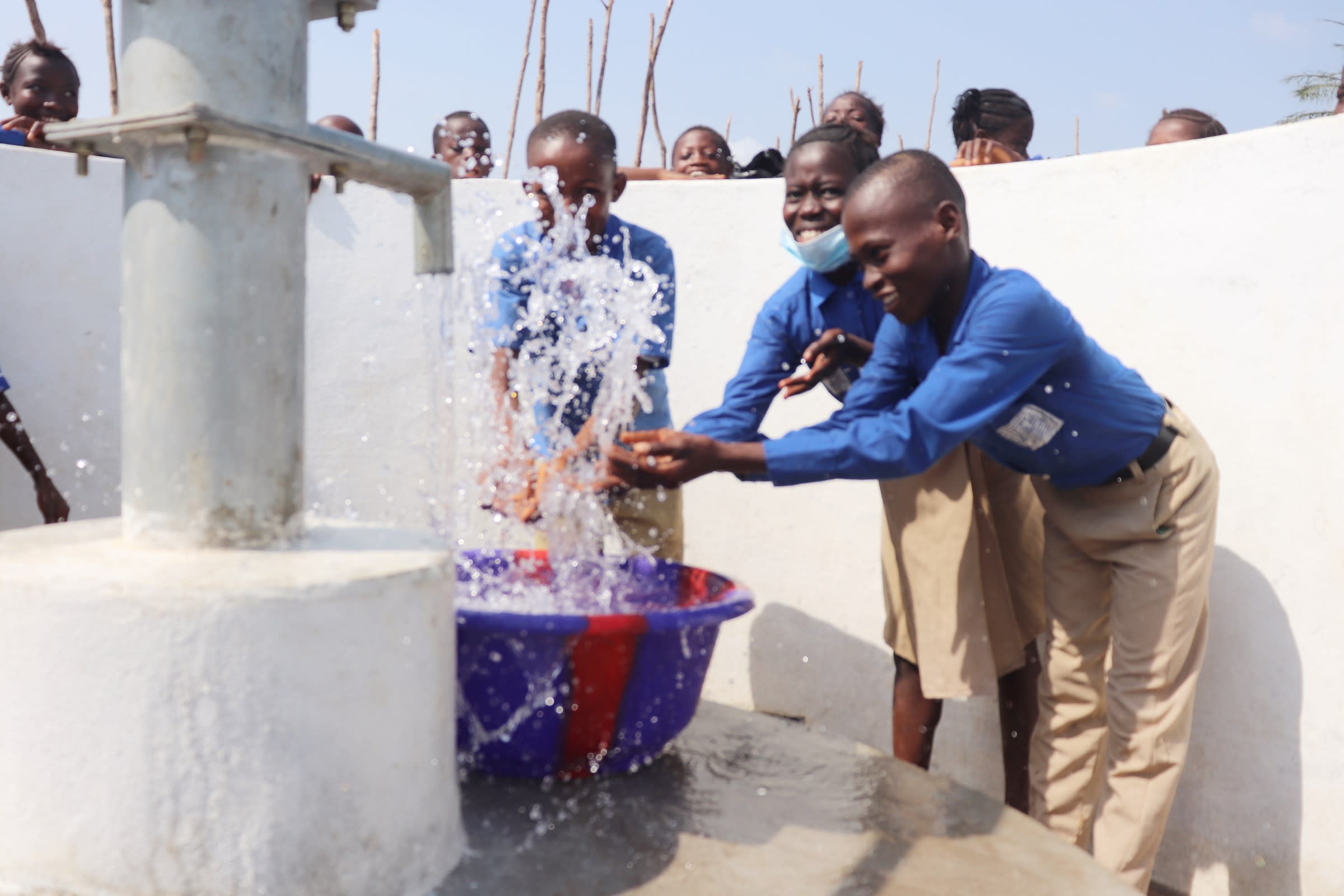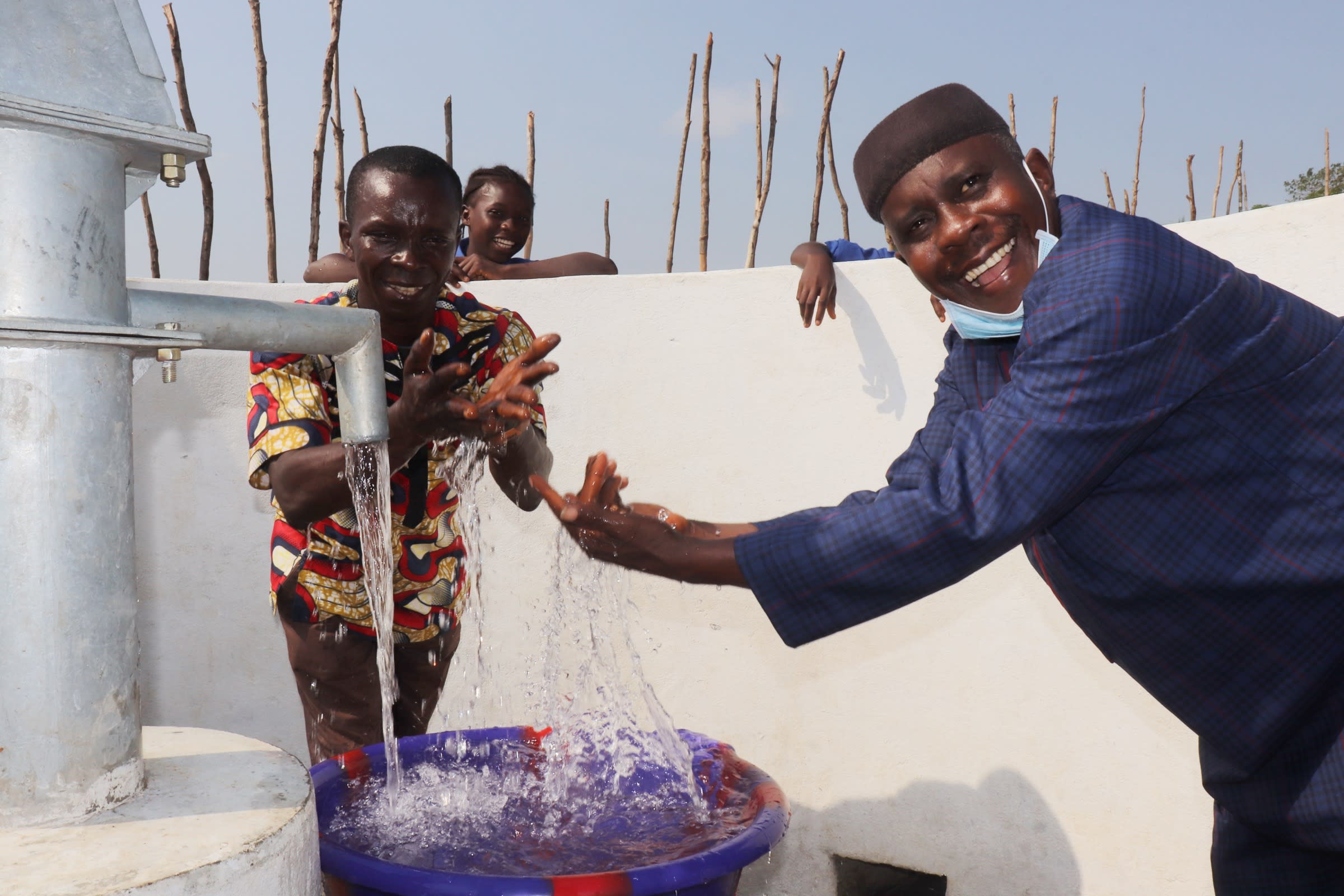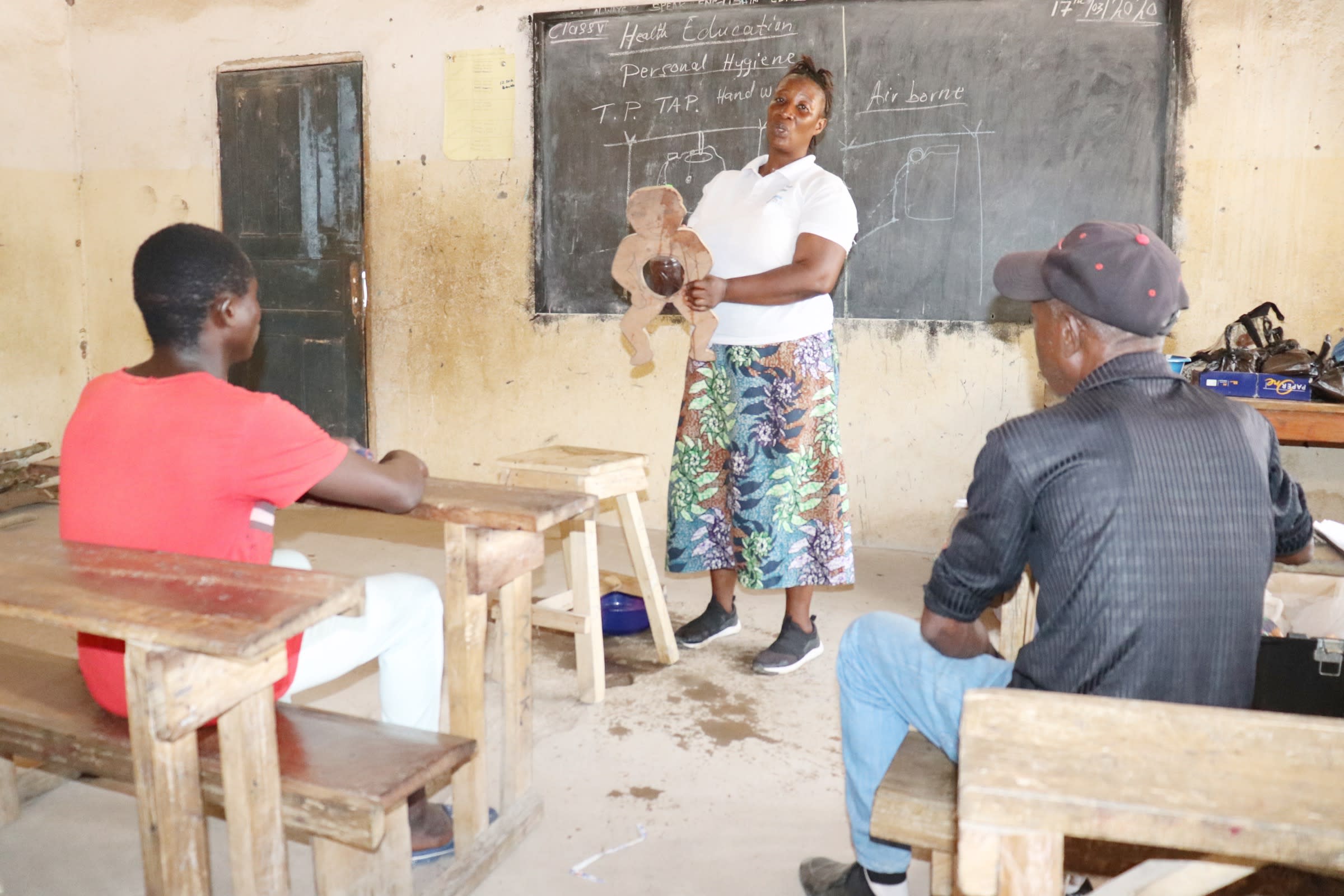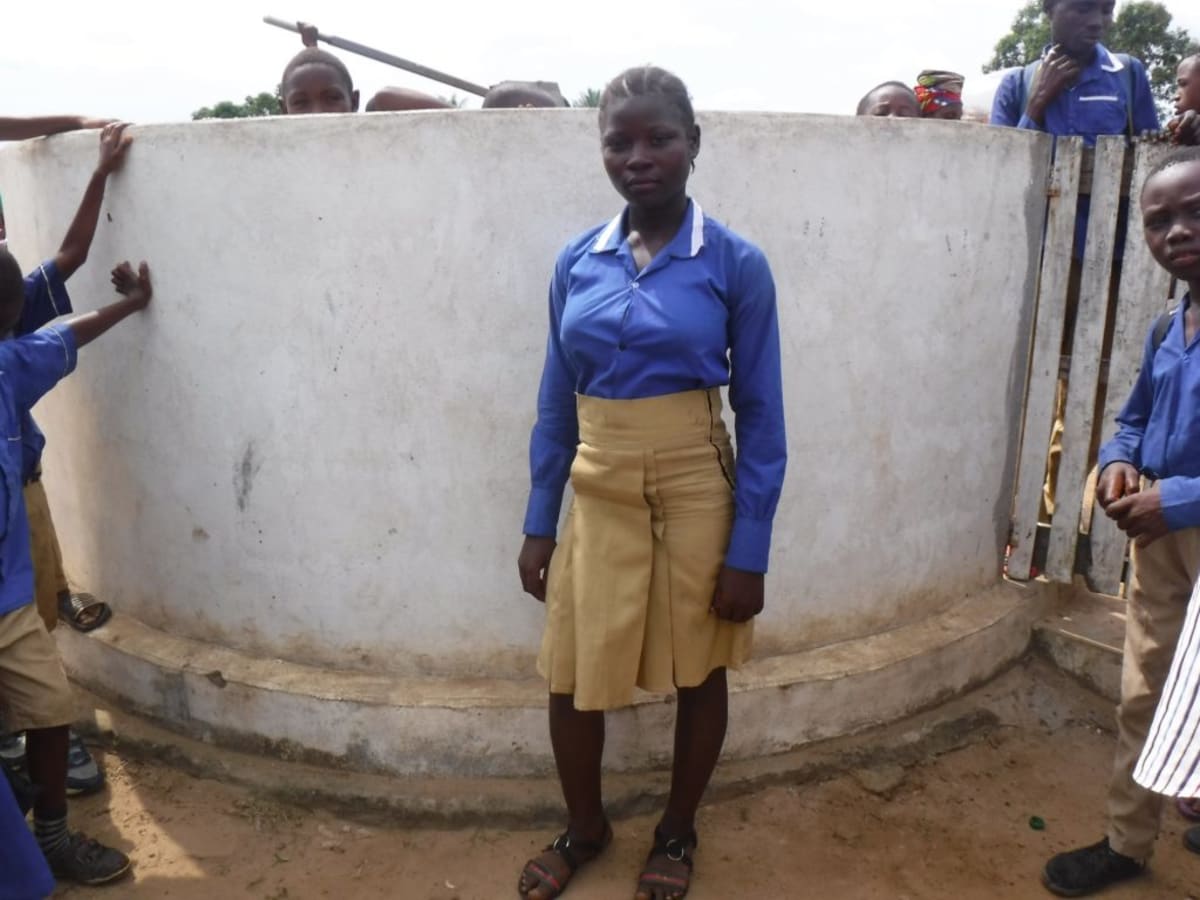Borope village was once just a few houses scattered around with patches of bushes. The arrival of a mining company at the turn of the century suddenly increased the population and the number of houses. Landowners rushed and built nice homes in the hope of collecting rent, but they were later disappointed by the abrupt closure of the mining company. Today, many of these homes sit empty.
As people rushed to live in the area following the opening of the mine, a need for schools arose. So, the local head man opened a school in his backyard in 2003. The population was larger than expected when the school started with more than 350 students showing up the first day. So, some students had to sit outside during class. The need for more space led the school to relocate in 2009 to its current location. Today, more than 616 students attend the school.
The school has not kept up its water supply with its growth. The school has a well on its property. But it is broke down years ago and no longer provides water.

With a broken well on the school grounds. The school does not have adequate access to a clean water supply. Sometimes, the students will turn to the nearby stream to get water because it is easy and close. But doing so exposes them to waterborne diseases.
"A village of more than one thousand people and one functioning water well. I feel bad for my students and family members, we are left with no option but to drink water from the stream or open water well," said teacher Ibrahim Bangura.
"The children, because of health problems caused by drinking dirty water, are absent from school frequently."
The other main source of water for the school is a community well which is located on the other side of town.
"We the children carry the bulk of responsibility of fetching water for the homes and school," said Alimamy, a student at the school.
Unfortunately, that well frequently falls into disrepair and is not fixed quickly. Our teams observed during their visit that the well pad is damaged in need of repair and the pump itself also needs to be repaired to improve functionality.
That forces people to seek alternative water sources that are generally unsafe. The fact that the school shares the well with the community means that there are often long lines to fetch water. It is the only functioning water well in a village of more than a thousand people, far too many to share one water point. Some children are not willing to wait in line, so they opt to get water from whatever is the most convenient place, even if the water is not safe for drinking.
The conversion of the school well to a borehole will ensure that there is year-round access to safe water on the school grounds.
Here’s what we’re going to do about it:
Well Rehabilitation
The well marked for this overhaul is dry for a few months every year and needs major work to supply adequate, clean water to the community year-round. The pump will be removed, and a hand auger will be lowered inside and powered by a drill team. This hand auger will allow the team to drill several meters deeper to hit a sufficient water column that will ensure the well supplies water throughout all seasons.
As the team drills, the casing will be installed, transforming the bottom of this hand-dug well into a borehole. PVC piping will connect this lower system directly to the pump, a construction that we know will also improve the quality of water.
Once this plan is implemented, everyone within the community will have access to safe drinking water in both quality and quantity, even through the dry months. The community is going to be allowed to fetch water during school hours and shortly after. The fetching of water is also going to be restricted on weekends.
Hygiene and Sanitation Training
There will be hygiene and sanitation training sessions offered for three days in a row.
After our visit, the hygiene and sanitation trainer decided it would be best to teach community members how to build a tippy tap (a hand-washing station built with a jerrycan, string, and sticks). They will use these tippy taps for handwashing demonstrations, and will also teach about other tools like dish racks and the importance of properly penning in animals.
These training will also strengthen the water user committee that manages and maintains this well. They enforce proper behavior and report to us whenever they need our help solving a serious problem, like a pump breakdown.

 Borehole Well and Hand Pump
Borehole Well and Hand Pump


































